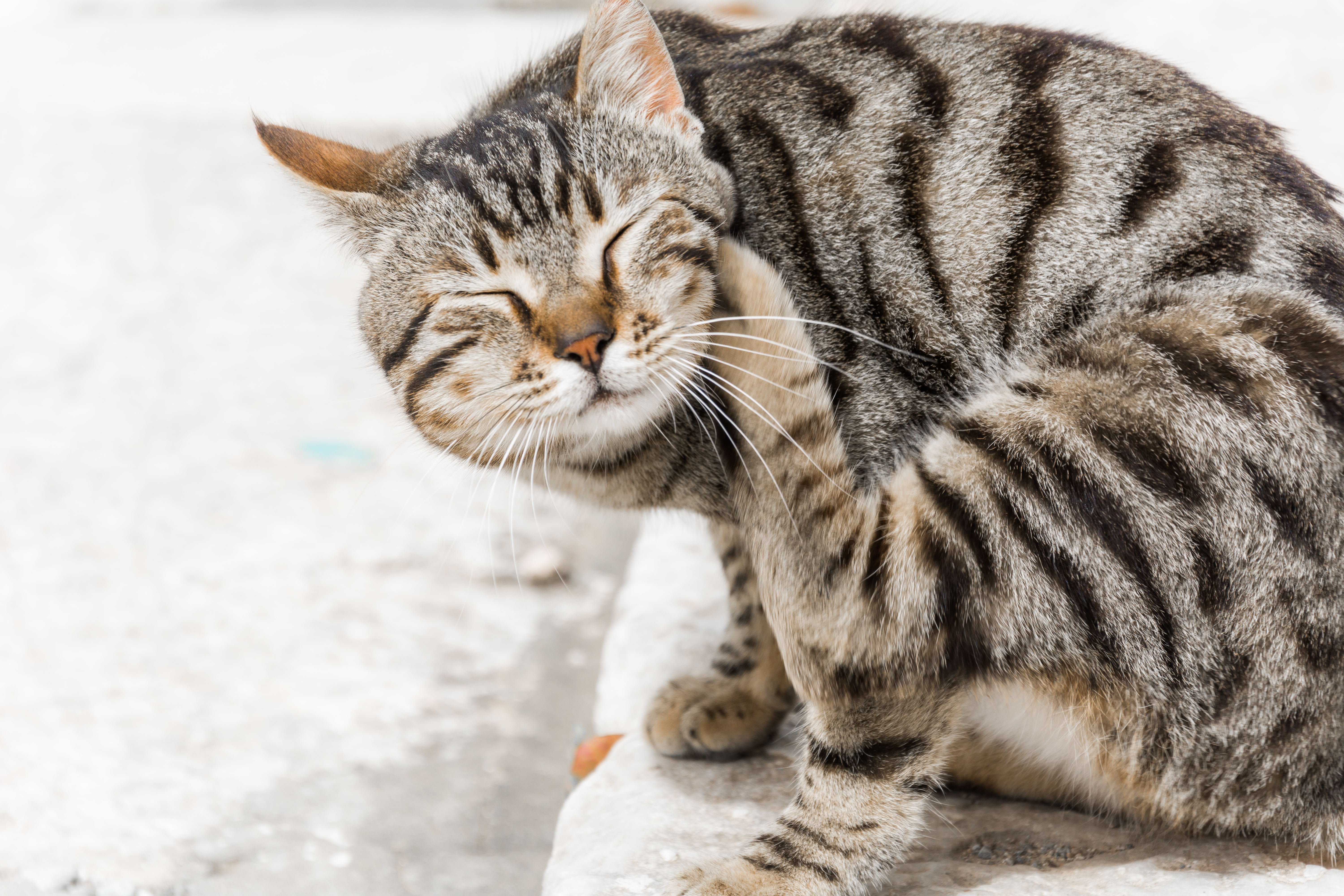
It isn’t possible to completely eliminate parasites from your cat’s life but it is possible to control and prevent them becoming a problem through continuous, effective flea and worm control treatments.
A common misconceptions is that if your cat is indoors then it doesn’t need flea or worm treatment. This isn’t the case at all. Fleas can happily travel in on clothes and bags; a quick trip to the vet or groomer is a great place to pick them up! Roundworms that are picked up by your feline friend as a kitten are never 100% eradicated. Tapeworms can be carried by fleas... and the cycle is continuous and endless.
Cat fleas are everywhere: they are carried on other cats, dogs, foxes and even hedgehogs! Exposure if your cat goes outside is almost impossible to avoid. If your cat is indoors, they can’t escape either as fleas can be brought in on your clothes or other objects that the flea chooses to make a temporary home on before moving into yours.
Fleas live on your cat where they bite and suck their blood before laying their eggs, alongside their faeces, onto the coat. These eggs and faeces fall off into the environment. The faeces is a food source for the developing flea and, depending on the warmth and humidity, in as little as 13 days the cycle is completed and adult fleas are back on the hunt. One female flea can lay 40-50 eggs per day.
 You may not see fleas on your cat as they are expert groomers but look out for the following tell-tale signs that fleas are in residence - your cat chewing around their tail or belly; scabs around their neck or tail; suddenly ‘crinkling’ their back or becoming more sensitive to your touch.
You may not see fleas on your cat as they are expert groomers but look out for the following tell-tale signs that fleas are in residence - your cat chewing around their tail or belly; scabs around their neck or tail; suddenly ‘crinkling’ their back or becoming more sensitive to your touch.
Fleas will also have a go at us humans as well. It isn’t pleasant having red itchy bumps on your legs; it is less pleasant thinking about having them on your cat and in your house. Most people think fleas are a seasonal problem in Spring or Summer but, as most houses use central heating, the flea season is continuous throughout the year requiring year-round treatment.
Fleas can carry some nasty organisms which can potentially cause disease in both us and our cats. Fleas also carry a tapeworm species as well.
Worms are picked by your cat accidentally eating the infectious worm eggs. These are passed into the environment by other cats' faeces; sandpits are a particularly good source! Birds and rodents can also eat and carry the eggs which get transmitted to your cat when they have a sneaky fur treat or feather meal. If your cat is completely indoors these routes of infections are not an issue. However, cats can be infected with roundworms from their mother shortly after birth. The roundworm has the crafty ability to remain in small numbers in your cat’s body where they slowly develop into a constant source of infection. This requires ongoing treatment during your cat's life . If you feed a raw diet, issues with parasites can occur if you are feeding game meat or poultry.
Most severe signs are seen in kittens with vomiting, diarrhoea, failure to grow properly and the classic ‘pot-belly’. Older cats can have clinical signs but these are often milder. The hookworm is particularly nasty and attaches in the intestine feeding off blood, which can be life-threatening in kittens.
Some worms are 'zoonotic': that is they can infect and cause disease in humans, particularly children, elderly and those who immune system is suppressed.
The London Cat Clinic understands that cats and their owners have different requirements. Indoor cats will be different to outdoor cats, small cats different to big cats. Your home environment is important in determining the best plan for you and your cat, including whether you have small children, an elderly person or a family member with a suppressed immune system.
When we first see your kitten or cat, we will discuss the options available to you and what we consider to be he best program for you both. There are a number of excellent treatments available. Some treatments are in a tablet form and some are in a spot-on form that goes onto the skin on the back of the neck. We will work out, sometimes through trial and error, which plan works best for you to ensure continuous and easy parasite control.
It can all get a bit confusing when you first get a kitten or cat. We try to make it easier for you by providing all of our new patients with an easy-to-follow plan with the treatments required and when they should be given.
We will always discuss your cat’s parasite control at their annual health assessment. We are always happy to chat if you would like to try something different or have any questions.
If you would like to spread the cost of your cat’s preventative health care treatments over the year, paying monthly by direct debit, why don’t you join our Feline Fine Health Plan. If you become a member in addition to all your parasite control, annual health check and vaccinations, you are also entitled to significant benefits and discounts on a number of clinic products and services.
If you would more information or to book an appointment, call The London Cat Clinic on 0203 740 1112 or book online here.